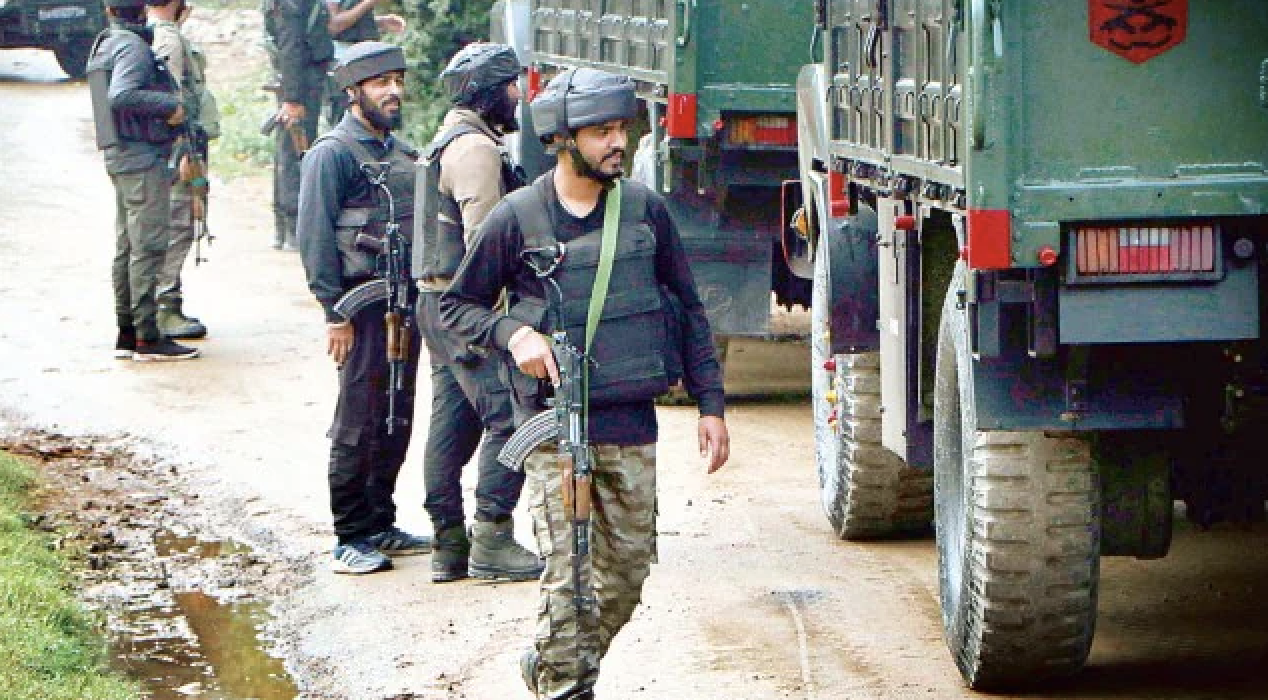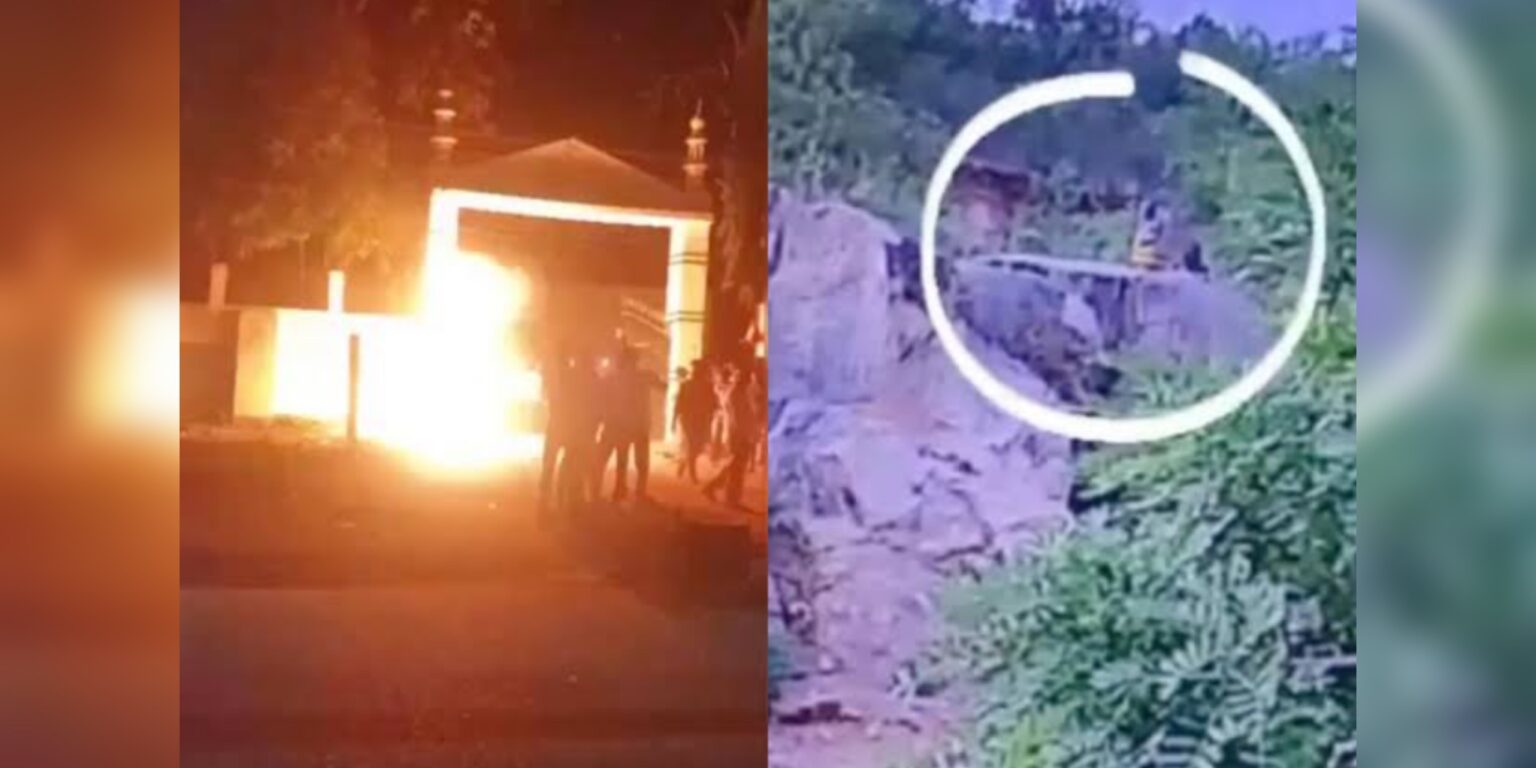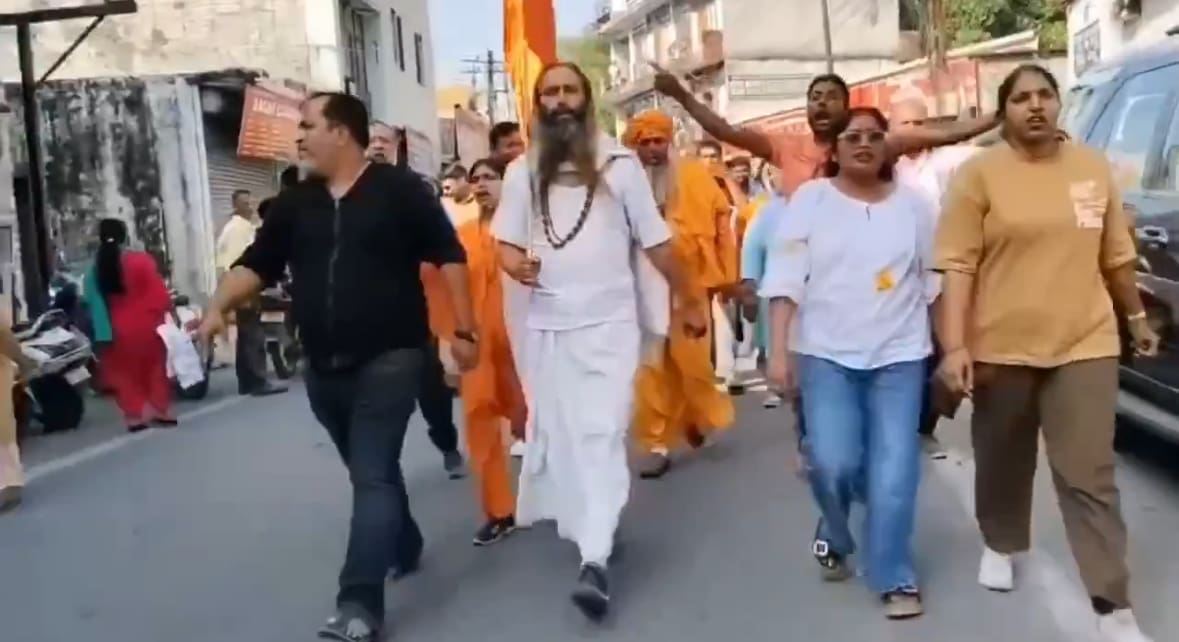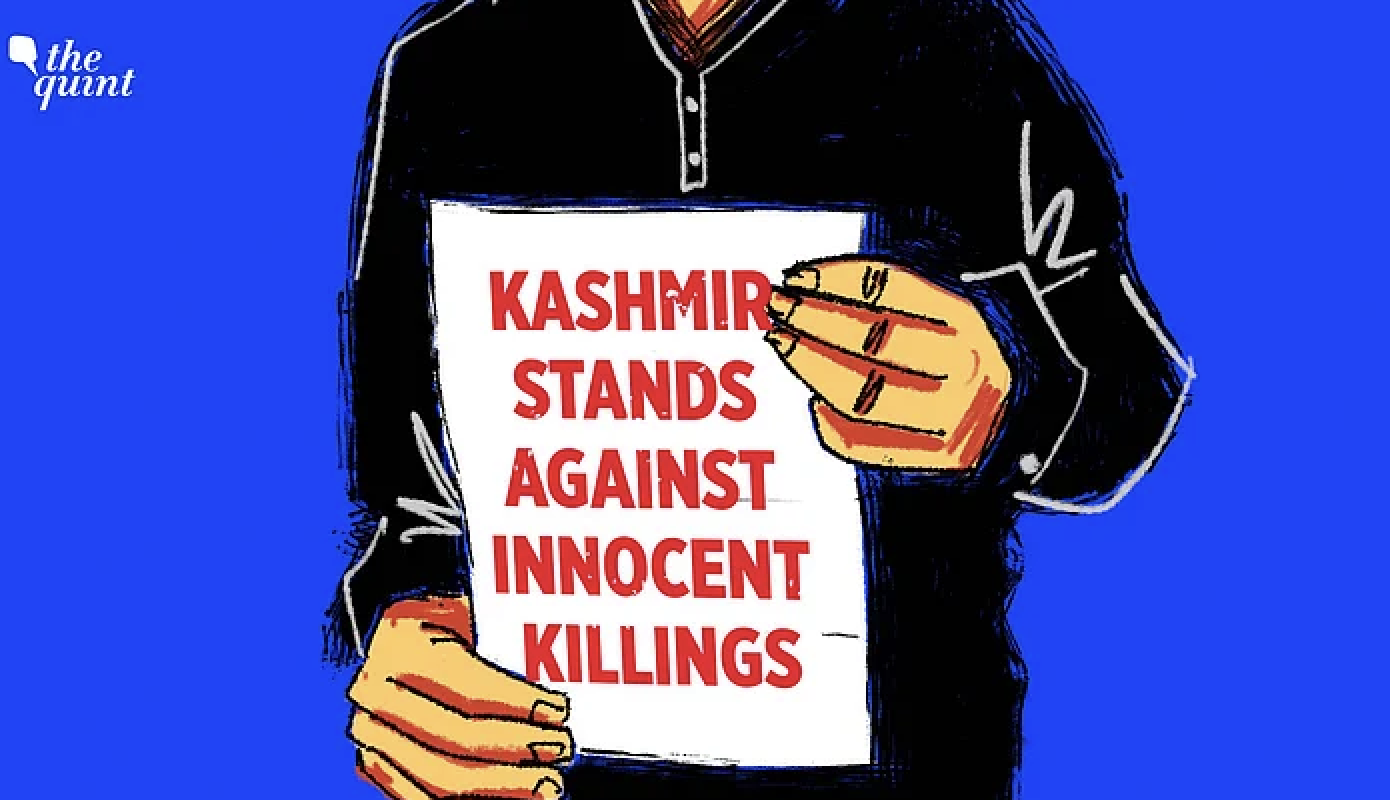
Gauri Lankesh, a high-profile journalist and activist who spoke out against the rise of right-wing Hindu extremism and stood up for India’s marginalised people, was shot to death on 5 September 2017.
Gauri was posthumously awarded the Anna Politkovskaya Award for her work. The trial of the 17 people being held in remand for her murder has yet to start. In partnership with A Safer World for the Truth, openDemocracy examines Gauri’s death – and commemorates her life.
Transcript
Narrator: Every week, a journalist is killed. Just for doing their job. For holding power to account or because their reporting uncovered a truth that someone wants hidden. In eight out of 10 cases, there’s no justice. Killing the Truth explores the cases of four remarkable journalists who paid the ultimate price. I’m Penny Dale. This time… India… and the death – and life – of Gauri Lankesh.
AUDIO CLIP: This government is anti-Muslims, this government is anti-Christian, this government is anti-Dalit, anti-women, anti-Left, anti-progressive forces
Narrator: This is Gauri Lankesh speaking out against the current right-wing BJP government of Narendra Modi
AUDIO CLIP: She stood more than anything for a sense of absolute fearlessness. She never lost sight of the ability and the need to communicate and build bridges.
AUDIO CLIP: She was very compassionate. And whatever she could see from her bare eyes and whatever she could see from her heart. She used to respond to that. And that response was – never it was artificial. She used to go all in, you know
AUDIO CLIP: The first thing that comes to my mind when I think of Gauri is: she was very loving warm, full of joy and joi de vivre as you call it. She’s all of five foot tall and a small build. She was very brave.
AUDIO CLIP: Slight of frame, quick of movement, always that brimming mischief in her eyes, compassion in her eyes, and a very beautiful smile.
Narrator: Gauri was born in January 1962 in Bangalore in the south-western state of Karnataka. Her father was P. Lankesh, a celebrated poet, fiction writer, playwright and journalist who wrote in the local language of Kannada and set up a publication he named after himself. Gauri followed in her father’s journalism footsteps – but she moved to Delhi, and worked in TV and for other English-language publications.
AUDIO CLIP: I’m Kavita Lankesh. I’m a filmmaker. And I’m Gauri Lankesh’s sister
AUDIO CLIP: When my father passed away in 2000 she came down to Bangalore, and it was kind of thrust upon her to take up his paper though she was very reluctant to do so. My father was such a big – what you’d call it – a banyan tree. So it was very difficult for her to think of taking over the newspaper, which he was running, which was highly popular at that time. But she did take it up. Because she did believe in his idealisms, which is basically for harmony and secularism in the country, anti-corruption, pro-Muslim, pro-minorities. All this she believed in and she took it up. And, in fact, in the beginning, she would write in English and people would translate it for her to Kannada, and gradually within a matter of two years, she could master the language so well that she would correct other people’s spellings and everything – she would edit and correct it. So she was good at that.
AUDIO CLIP: I’m Teesta Setalvad. Gauri and my relationship was both as a fellow journalist, a dear friend and a fellow traveller in terms of activism of different kinds. Just like Gauri Lankesh, I moved from, quote unquote, the mainstream media to niche journalism, and began publication of a journal in August 93, Communalism Combat, and she regularly contributed to it, writing about human rights and the processes that have led to the dilution of democracy and majoritarianism within India, the very, very bloody and othering politics of sectarian violence, which in India, we call communalism – when there is targeted mass violence against religious minorities, for instance.
AUDIO CLIP: Gauri before year 2000 and the year after 2000 is when she made that seminal leap, as I always say. When she moved from the relatively cloistered and elite world of English-language journalism to writing in her mother tongue. And it was that communication every week in her columns that reached corners of Karnataka, the state where she lived, that made her voice echo and her name an iconic one first in her father’s journal – Lankesh Patrike – and then, after 2005-2006, in Gauri Lankesh Patrike, spoke to this audience every week, passionately raising issues, provoking thought, demanding action.
AUDIO CLIP: She moved closer to the friends who actually were on the ground. And she became more human in her approach. I should say it is a kind of journey from sympathy to empathy.
AUDIO CLIP: I am Shivasundar. I am an activist basically and I was also a columnist for Gauri Lankesh magazine.
AUDIO CLIP: Gauri was an activist journalist. Let me define what I mean by that. Both journalism and activism is a kind of a journey to find the truth. And if journalism is only to write about the truth, the activism is about the transformation, it’s about the ideals that should be established. And it’s about a struggle against the forces which are against those ideals. She was combined with those two things. Whatever she wrote in her paper, she wanted to actually bring those changes in the society, in the form of struggle. Sometimes it was on the streets. Sometimes it was on the social media. Sometimes it was with the government. Sometimes it was in the courts.
AUDIO CLIP: She fought for one tribal village, for instance, where they were forcibly evicted from a forest. 3000 people left homeless. And she went there and talked to them, wrote about it. Then she came here, talked to the chief minister here and now made sure that there’s about 580 houses built there.
Narrator: That’s Kavitha again – who has made a film about her sister’s life as part of the A Safer World for the Truth campaign, which documents and seeks justice for the killings of journalists.
AUDIO CLIP: We shared the office building, in fact, I was on the second floor, she was on the first floor of the same building. When I go there, I would find her talking to some young couple, maybe, who are inter caste, and one Muslim one Hindu in love, and how do we, you know, go ahead with a marriage, and how do we convince their parents. She was very, very passionate about everything like that, you know, anything to be secular and open and harmonious. Always for the minority, the poor, the women’s rights, the transgender people. And I think Gauri was a bridge like that, she connected so many dots… So I’m amazed – the kind of things she’s done, the number of people she’s touched. And I think she’s passionate about every one of them. All this was very evident I felt at the kind of people who turned up when she was assassinated.
AUDIO CLIP: I’m Aditya Bhardwaj. I’m a journalist with over 10 years’ experience covering crime and other issues in Bangalore. I knew Gauri as a senior colleague in the field and I had interacted with her several times. If we chart Gauri Lankesh’s career in Kannada journalism from 2000, it goes parallel to the rise of Hindutva right-wing in Karnataka.
Narrator: Hindutva is a political ideology of the extreme right-wing BJP party that has been in power since 2014. Its ultimate aim is to transform India from a constitutionally secular state into a Hindu state or Hindu Rashtra – in which some Indians will be more equal than others. The Hindutva ideology is quite different from Hinduism, which accepts that other religions should exist in society. Supporters of Hindutva are often aggressive and violent towards anyone who argues against their ideology of Hindu supremacy. And Gauri Lankesh was vehemently and publicly opposed to it.
AUDIO CLIP of Gauri Lankesh:
In twelfth century we had Basavanna
Narrator: Basavanna was a twelfth-century poet-philosopher, statesman, social and religious reformer
AUDIO CLIP of Gauri Lankesh: who spoke much before Marx about the dignity of labour, of equality, of rationality, and specifically against Brahmin hegemony. But today all those who claim to be Basavanna’s followers are BJP supporters, totally against what Basavanna stood for.
AUDIO CLIP of Gauri Lankesh:
Death threats have become a common factor in Karnataka in the name of culture or protecting women, or attacks on liberals or leftists in the name of Hindutva”
Narrator: Gauri was speaking about death threats in her home state just months before she was killed. But it’s not just happening there – India is one of the most hostile and dangerous places for journalists to work in. As Aditya explains.
AUDIO CLIP: If you are critical of the incumbent regime, of their ideology, you are a target for systematic online trolling campaigns; raids from taxmen; there may be false cases that may be hoisted on you. There is a journalist who has been arrested under terror laws. Journalism may itself be criminalised – that is the fear. And like in Gauri’s case, you can even be killed.
AUDIO CLIP: The kind of India we live in today, it’s a sinister place. It’s not an easy place.
Narrator: That’s Teesta again, who edits the monthly Communalism Combat magazine.
AUDIO CLIP: And yet, I must say that journalists are still trying and brave independent platforms have emerged, and in multiple languages, despite these intimidations, despite deaths, despite criminal cases, despite sedition cases, being being lodged against journalists, despite deaths, and we’ve had 20 deaths in the last one and a half years alone
Narrator: Brave, independent – that was Gauri’s kind of journalism.
AUDIO CLIP: A pen like Gauri was a threat to those who believe that, you know, questioning authority is not your democratic right. And what you need to do is succumb and be silenced to authoritarianism – of a very unique and scary kind. I remember amongst her last columns she had taken on the extremely anti-people policies of the central government at the centre that came into power in 2014. She wrote about the debilitating demonetisation policy that completely killed India’s informal sector. She wrote about the caste that she was born to, the Lingayat, and the demand that sections of Lingayats have – of being treated separate from the Hindu religion. Eclectic, so much writing.
AUDIO CLIP: Her refusal not to say and speak and write, what she deeply believed in… her life was testimony to that, as was her brutal sinister killing.
Narrator: Gauri Lankesh was murdered in Bangalore on 5 September 2017.
AUDIO CLIP: So that day I very distinctly remember that I was in the newsroom in the Hindu newspaper where I work in Bangalore. The TV broke the news that Gauri Lankesh was attacked by gunman. And within a few minutes, I got a confirmation that she was actually dead.
AUDIO CLIP of TV : Senior journalist Gauri Lankesh has been shot dead, going across to our reporter joining me from Bengaluru, any details that the police have about her assailants. The incident has happened 10-15 minutes ago and the police presence can be seen at this point in time. Sketchy details still but this seems to be another case that the government will have to own up and answer for because it was known that Gauri Lankesh is somebody who had lived under threat.
AUDIO CLIP:
Oh, God, it still sort of brings. I mean, shivers and I just can’t even believe it even now. I get this call from a dear loyal friend in Delhi, And she said, I don’t know. I hope it’s not true. But I’ve just heard that Gauri Lankesh, your dear friend, has been shot. And I mean, I just blanked out for two seconds. And then I was freaking out, I was putting on the television
And calling anybody and everybody I could think of. Phone’s ringing through all they were just constantly busy and engaged. And then it I think was about 20-25 minutes later that I actually got through to Shivsundar. And I said, Is it true it can’t be true and he said it’s true.
AUDIO CLIP: Gauri was assassinated, I think, somewhere in between 7.50 and 8pm on September 5 night. And there are hundreds of phone calls coming from all over the country and all over Karnataka and Bangalore to know what happened. When I reached, some hundreds of people had already assembled there. People from the neighbourhood Indra, Lankesh, Gauri’s mother, and Kavitha was there.
AUDIO CLIP: I would play badminton very near to her house actually. So I had gone to play and just finished and I was coming back. And my mother called me in fact said: “Something has happened to Gauri. Apparently she’s fallen down. Can you go and check what happened?” And my first thought was – she would always be obsessed about things – she would eat very late into the night and then in the morning no breakfast. So I thought maybe she’s had some low blood pressure. Maybe she’s fainted. The worst-case scenario is it is some heart attack. I still remember I was just about 100 metres away from her house. I got a call from one of the television station channels and said they asked me: “Madam I believe Gauri is shot – what do you know about it?” And my mind had gone numb. What was this shot? Who could shoot her?
AUDIO CLIP: Her house has a main gate. She had parked her car in front of the gate, and she had opened her door. And immediately a first bullet was shot at her. And she actually ran inside the compound to the inner gate. And at the veranda, I think three more shots were shot at her – which two actually pierced through her heart and abdomen. And immediately, she actually fell down right in front of the inner door. Within a span of 10 seconds, she lost her life.
That body was laying there when I I mean, police had already cordoned off the area. But still, some of us could go in and see the body was laying there. It was a… It was a very… anyway. It is difficult to actually recollect those things, you know. In fact, there is a guilt in remembering her. In fact, we – all the colleagues and the activist friends of Gauri – always think that how could she be targeted? When we are all there? We are ones, the full-time activists, you know.
AUDIO CLIP: People came and stuck their camera and their mic. But actually I didn’t speak that day. I couldn’t believe she was gone. I couldn’t believe somebody could kill this frail, small little woman. It’s horrible. It’s very, very traumatic for me. It was a blur.
AUDIO CLIP: The only thing that struck me at one point was I was just sitting outside. She was taken away for post mortem. And the investigation people were still inside the house, looking at the CCTV, Even that I haven’t been able to see it till today. I don’t think I’ll ever be able to see that.
But I remember it started raining. And it’s such a picture because they had made the markings. What do you call that? Around her when she was found murdered. And it started raining and the chalk marks started fading away. And I remember Gauri’s friends or comrades and they all started shouting a slogan: those who killed Gandhi killed Gauri.
Narrator: What the hundreds of people who had gathered at Gauri’s house meant was that in 1948 Mahatma Gandhi – one of India’s independence leaders – was assassinated by Hindu extremists. And so was Gauri. The investigation was to prove them right. And bring to light some shocking details…… Aditya , the crime reporter on the Hindu newspaper who covered Gauri’s murder from day one, and Gauri’s sister Kavitha take us through what the investigation uncovered:
AUDIO CLIP: It was a meticulous assassination. You know, because they didn’t use the phone, There was no leads from one to one.. It’s shocking to know my sister lived alone in a little remote place, a very quiet place, which she loved. And they took one year on following her to kill this five foot woman and killed so meticulously that the police and the whole investigation team was really clueless about it. It looked like they were all floundering in the dark and nothing was happening. In the beginning. After almost six months or eight months, I think the first break came. They were planning to assassinate somebody else, another writer, and through that link, the whole kind of thing unravelled quickly after that, you know, within a matter of one year.
AUDIO CLIP: The police have concluded that members of a Goa-based Hindu supremacist cult-like organisation Sanatan Sanstha, and its sister organisation Hindu Janajagruti Samiti. Members associated with these two organisations actually conspired, formed a gang and actually were behind the murder of Gauri Lankesh. So, the chargesheet says that these members were inspired by a book published by Sanatan Sanstha called Kshatra Dharma Sadha , which is compiled by the group’s founder, Dr Jayant Balaji Athavale. The book actually talks of the end of Kali yuga this epoch of time and the onset of Satya yuga another epoch of truth. And Satya Yuga is conflated with Hindu Rashtra in other literature of the group. So, the book says that evil-doers must be punished and spiritual seekers must be protected to advance the onset of the Satya Yuga.
Narrator: Gauri was one of the people who was branded as an evil-doer – because she spoke out against Hindu nationalism.
AUDIO CLIP: Parashuram Waghmore who pulled the trigger on my sister. Apparently he was shown one of her speeches against Hindutva, not Hinduism. You know, he was shown this video on loop almost, which made him think that she hated Hindus and not Hindutva. There’s a difference between that and not many people seem to know that. And he didn’t know apparently that she was a journalist, or anything at all. Audio and video has shown to him going on that she hates Hindus, so you should protect Hinduism, you should kill her.
AUDIO CLIP: And also now it has come to light that three others were also killed by the same gang. And also, there was a hit list that was recovered by the police from these accused who were arrested. And it had names of 35 writers and activists from across the country, nine from Karnataka and 26, from various parts of the state from Punjab to Tamil Nadu. So, the very spectre of 35 writers being targeted, itself, is very shocking. And it tells a lot about the country, the politics and the Indian government today in the country, and it is also concerning.
AUDIO CLIP: She was an embodiment of values that the right-wing forces never actually appreciated.
Narrator: Shivasundar – Gauri’s work colleague and her friend.
AUDIO CLIP: She was a single woman. She was bold, modern, secular. She was a kind of direct challenge to the patriarchal, regressive, values polarising the society. Her magazine, every week, every page and every sentence was a challenge in so many ways, in the cultural front, political front, economic front, literary front, and in every aspect, it was a weekly challenge and a woman with such a boldness, challenging the regime was something these people could not actually digest. And you should know that her magazine did not receive any advertisement from the government, from the corporate, so there was no control. It was a free thinking magazine So nothing could silence her.
Narrator: Gauri’s murder was, says Teesta, a:
AUDIO CLIP: chilling, chilling message to silence critiques of this regime, and more extreme regimes that might follow. To silence her, particularly as an individual, given what she stood for, but also to, to send a message to everybody That, you know, don’t speak up too much. Don’t try and make a big brouhaha about this because we, this organisation that according to me should be declared unlawful – Sanatan Sanstha – they will teach you a lesson because we stand for Hindu theocratic state and what is this democracy? What is this constitution that you talk about?
Narrator: Seventeen people have been charged in Gauri’s murder case. They are being detained in remand under organised crime laws – which are non-bailable. But one of the suspects argued that because he had not committed a crime before he should be granted bail. Kavitha explains why she decided to go to the Supreme Court to stop this happening.
AUDIO CLIP: You know, it’s not just Gauri’s case. Throughout India, any case like this, if they’re committed the crime just the first time, then they’ll be out on bail. Being out on bail in India can be till they’re dead, they can be out on bail. And you know, partying, having a ball and killing, maybe planning more murders, you know, it’s never going to end my sister’s not going to get justice..
Narrator: Kavitha won the Supreme Court case – but it’s been four years since Gauri was murdered and the trial has not yet started. Until it does, the whole truth behind Gauri’s killing won’t be known.
AUDIO CLIP of protests:
(chanting – Sister you are not alone, we are proud to say I am Gauri)
AUDIO CLIP: The country erupted in protest when she was assassinated.
AUDIO CLIP: In small towns in different languages from the northeast of India, to the West of India, to the south of India, to the Kashmiri, you know, her killing and assassination aroused people in a way that few things have done in recent years.
Narrator: And this, Teesta imagines, is how Gauri might have reacted:
AUDIO CLIP: I can almost see her laughing about it and being mischievous about it, see what I could do, getting all this support and all these protests.
Narrator: Where the crowd chanted…. Sister you are not alone. We are proud to say I am Gauri
AUDIO CLIP: it’s so important to keep telling her story because she remains an inspiration for women, for men, for young people, for transgenders, for LGBTQ, for all adivasis, for indigenous people, for Dalits, for all manner of people because she stood for them. She somehow became their voice in her life – and in her death
AUDIO CLIP: And that’s why I think Gauri will continue to live for as long as people are there who still care for secularism and harmony in the country.
AUDIO CLIP: That way. She’s with us.
Narrator: Kavitha, Teesta and Shivasundar ending Killing the Truth: the case of Gauri Lankesh. This is an openDemocracy production in partnership with A Safer World for the Truth. Original music and sound design by Lee Sparey. Episode research by Anita Mureithi. Written and produced by me, Penny Dale.
This story first appeared on opendemocracy.net






